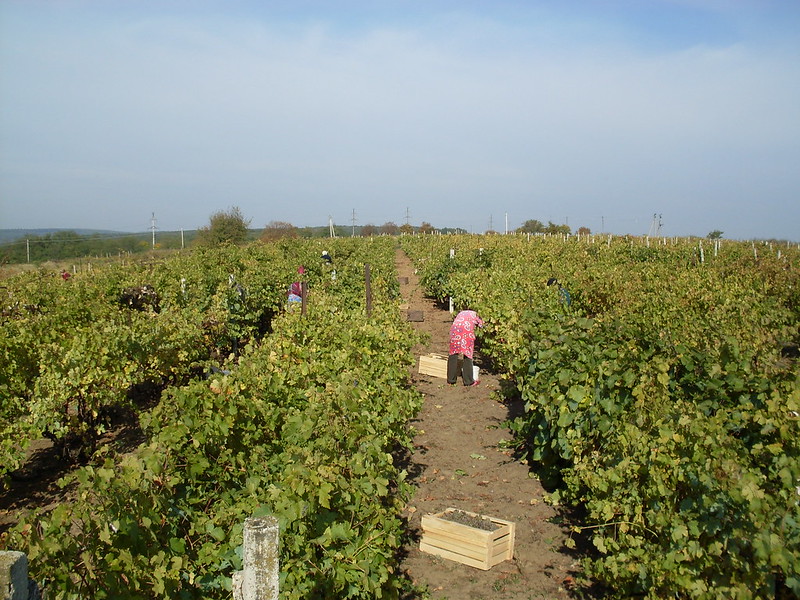How Poverty Affects Everyday Life in Moldova
 Poverty in Moldova is a common reality for those that live there. Many have had to leave their family, friends and homes to find a job because it is nearly impossible to find one in Moldova due to high unemployment rates. Now imagine being the ones left behind: the family members and life-long friends who are left in a politically torn country. Since Moldova gained its independence in 1991 it has struggled to fight poverty within its borders, affecting everyday life in Moldova. Moldova’s main causes of poverty are immigration due to high unemployment and governmental strife. These factors especially affect the children of Moldova.
Poverty in Moldova is a common reality for those that live there. Many have had to leave their family, friends and homes to find a job because it is nearly impossible to find one in Moldova due to high unemployment rates. Now imagine being the ones left behind: the family members and life-long friends who are left in a politically torn country. Since Moldova gained its independence in 1991 it has struggled to fight poverty within its borders, affecting everyday life in Moldova. Moldova’s main causes of poverty are immigration due to high unemployment and governmental strife. These factors especially affect the children of Moldova.
Immigration and High Unemployment
Many of Moldova’s citizens are moving out of the country. There are simply not enough jobs for everyone. Doina Grecu, a woman born in Moldova who moved to the U.S. to further her education, said that her father had to find work abroad for several years when she lived in Moldova. Electricity was not stable and was expensive then, so people would only be able to talk to their loved ones every now and then and waited to hear that they were alright. Grecu also recounted that some people traveled from Moldova all the way across Europe to France. Poverty in Moldova has caused many people to leave their homes.
Governmental Strife
Even though Moldova has strengthened its relationship with the EU, it still struggles with poverty because of its conflicting interests in trade. Half of the country believes that they should exclusively trade with Russian because of their history together, and the other half have seen that Europe has prospered in trade and believe that Moldova should trade with them.
To further complicate things, Russia has been known to retaliate if Moldova trades with other countries. Doina Grecu stated that there were videos of Russians destroying apples from Moldova for this very reason. Moldova has uniquely rich soil that makes it an agricultural economy, so this kind of retribution is extremely harmful to these farmers. And while farming is Moldova’s main source of income, the rural areas have an almost five times higher poverty rate than Moldova’s urban areas.
Moldova’s Impoverished Children
Child poverty is significantly high. UNICEF states, “Children in Moldova remain disproportionately poor.” Some children were sent to orphanages, not because they had no parents, but because their parents were unable to care for them, as recounted by Grecu. Other children had to live with their grandparents, who may be unable to properly care for them, while one or both of their parents went abroad to find a job to send money home.
Poverty in Moldova has improved over the years. The non-governmental organization EcoVillage Farms has come up with a way to help Moldova capitalizes on what makes it special. As mentioned before, Moldova’s fertile soil is definitely an asset to Moldova. As such, the country is making the transition to the “quality over quantity” mindset when it comes to what they eat, states Grecu. Since Moldova is mainly an agricultural country, investing in farmers and small businesses will help boost Moldova’s economy and improve everyday life in Moldova. EcoVillage’s goal is to give these upcoming businesses a place to start. A furnished kitchen space will be available for rent for these business owners to practice their craft. Renters can also pay to use other renters’ equipment so as to build a sense of community and learn from each other. In addition, EcoVillage will provide counseling in finance and the logistics of how to start a business.
This NGO’s dream is still in the works, but they are more than halfway to their fundraising goal. When they are finished, this opportunity for small food businesses in the country with help reduce poverty in Moldova by building its economy on its biggest asset: a quality grounds for agriculture.
—Moriah Thomas
Photo: Flickr
